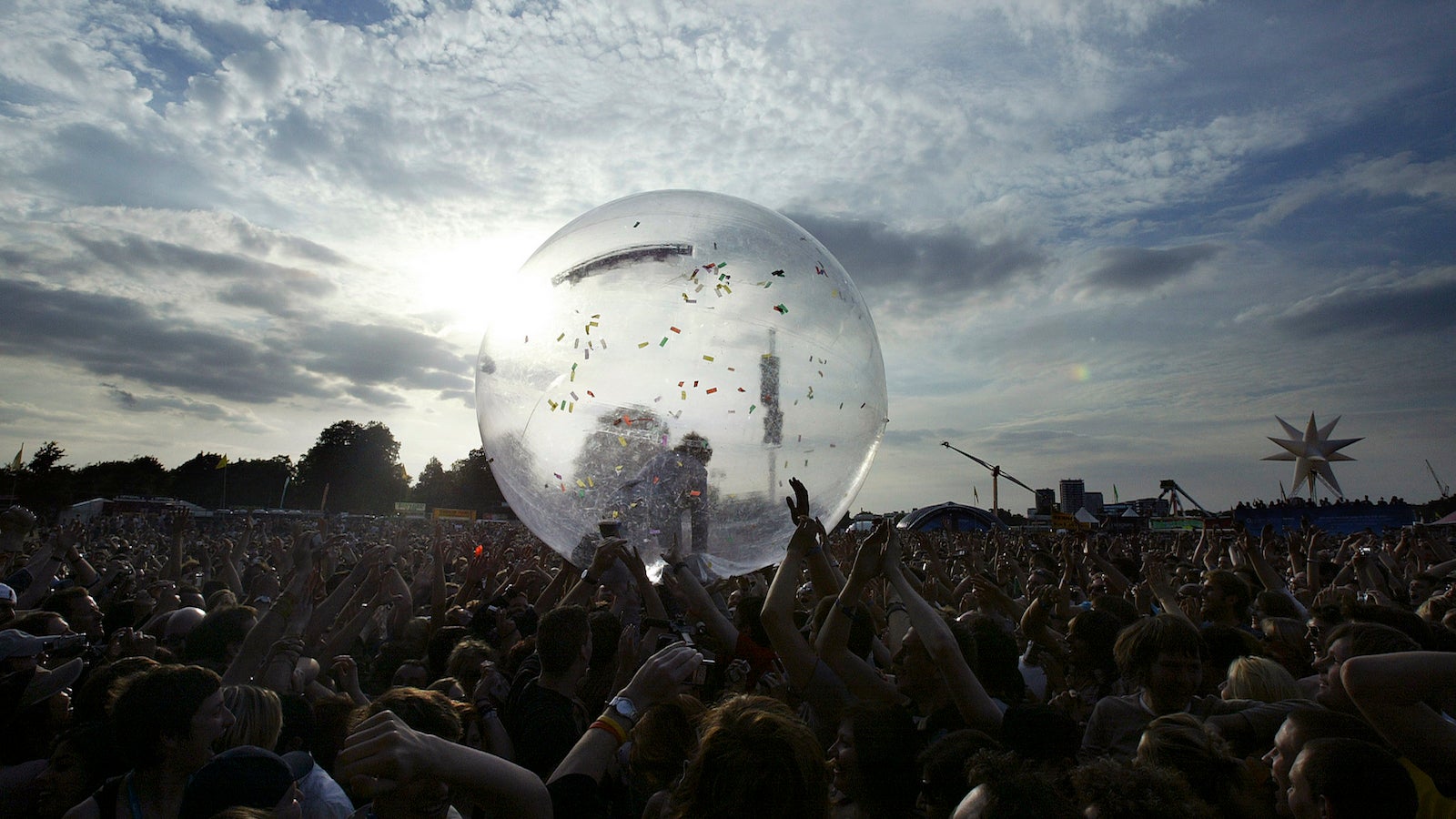Here’s a list of great stuff you missed in 2017 because you’re in a bad-news bubble
We’re all worried that instead of improving the world by making information more accessible, the internet has done the opposite by creating echo chambers that further entrench our prejudices.


We’re all worried that instead of improving the world by making information more accessible, the internet has done the opposite by creating echo chambers that further entrench our prejudices.
Most of the discussion in this area tends to revolve around political views. Thanks to the decline of traditional media and the proliferation of new online media outlets, people are less exposed to ideas that contradict their beliefs.
However there’s a bigger, far more damaging filter bubble out there. And because its existence is at the commercial core of the modern-day media machine, almost nobody is willing to admit its existence.
Welcome to the bad-news bubble
Forget fake news. Our real problem is balance. Respectable news outlets say they’re giving us an objective view of the world, yet drown us in a daily deluge of conflict and negative headlines: nuclear sabre rattling in North Korea, South Sea games of chicken with China, chemical attacks on children in Syria, the mother of all bombs in Afghanistan. And then there’s the runaway temperatures in the Arctic, economic collapse in Venezuela, authoritarianism in Turkey, the slow-motion disaster of Brexit in the UK, and, of course, the never-ending headlines from Washington overshadowing it all. It’s manufactured drama, and we can’t tear our eyes away.
All this bad news is great for business. According to a report released by Neilsen in April, news consumption across all media in the US, including cable TV, radio, traditional broadcast TV, and smartphones, has risen by 18% in the last year. Other English-speaking countries like Australia, Canada, and the United Kingdom will have experienced similar increases.
There’s no incentive to report good news in the modern-day attention economy, because it doesn’t get traction. Sure, democracy dies in darkness. But you know what else dies in darkness? Optimism.
Every headline, every news report, every viral video tells us that things are falling apart. No wonder we’re all in despair. Starving children, angry analysts, and dying polar bears make for easy availability heuristics: We tend to judge the frequency and probability of something happening based on how easily we can bring it to mind, and these things are memorable and iconic. And every time we discuss the lying politicians at a dinner party or see someone complaining about them on Facebook, we retrieve those memories and make them even stickier.
Bad news is the only news because it’s an addictive product. That’s why it’s everywhere. It doesn’t matter that we’re living in the wealthiest, healthiest, most peaceful, and most democratic time in human history. It doesn’t matter that poverty is decreasing, that fewer people are dying from war, or that more mothers survive childbirth. It doesn’t matter that human rights are improving or that more kids are learning to read and write than ever before. These stories are invisible because they don’t shock us or make us angry. And that means they don’t sell.
It’s not clear whether more visibility would make a difference, either. Thanks to something known as the kickback effect, evidence that contradicts our worldview only further entrenches it. It makes us feel good to stick to our guns, and we’re great at rationalization. Research shows that we experience a genuine rush of dopamine when processing information that supports our beliefs. That means that no amount of statistical evidence will convince progressives that they’re not morally superior, conservatives that immigration is good for the economy, or environmentalists that GMOs are safe. Similarly, evidence cannot compete with most people’s belief that poverty is rampant and that war and terrorism have never been worse.
Some good news
So how do we break out of the bad-news bubble? Read more good news—there’s plenty out there!
To start, here’s some from the past week that you probably didn’t here about:
- The World Health Organization (WHO) just announced that Mexico has become the first country in the Americas to eliminate trachoma, an eye disease that affects young children.
- Solar power recently broke through the 50% mark for electricity in California. They used to say it could only ever provide a fraction. Now they say it can never be 100%.
- Canadian coal production has dropped to a 30-year low, and is expected to see further decline as the country moves to phase out coal-fired power plants by 2030.
- Thanks to a new government initiative, the number of Indians with access to proper sanitation has increased from 42% of the population in 2014 to 63% today.
- The number of executions recorded worldwide has fallen by 37% since 2015. The decline was largely driven by fewer deaths recorded in Iran and Pakistan.
- A doctor in Virginia has found a cheap, effective cure for sepsis, one of the planet’s deadliest diseases and major problem in hospitals around the world.
- For the first time since the Industrial Revolution, Great Britain has gone an entire day without using electricity produced from coal.
- India’s Ministry of Sanitation has just issued a nationwide guideline allowing transgender people to use any public toilet of their choice. INDIA 1. NORTH CAROLINA 0.
- Japan has officially recognized a same-sex couple as foster parents, marking a first for the country and signaling a growing recognition of LGBTQ rights in Japan.
- A five-month-old whistle-blowing policy in Nigeria has already helped recover more than $200 million from corrupt businessmen and politicians.
- Taiwan has become the first Asian country to ban the eating of cats and dogs, with new laws imposing fines for consumption and jail time for killing and cruelty.